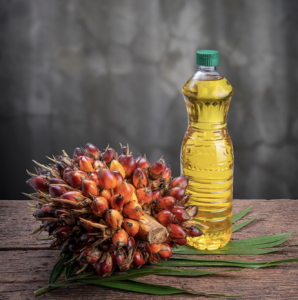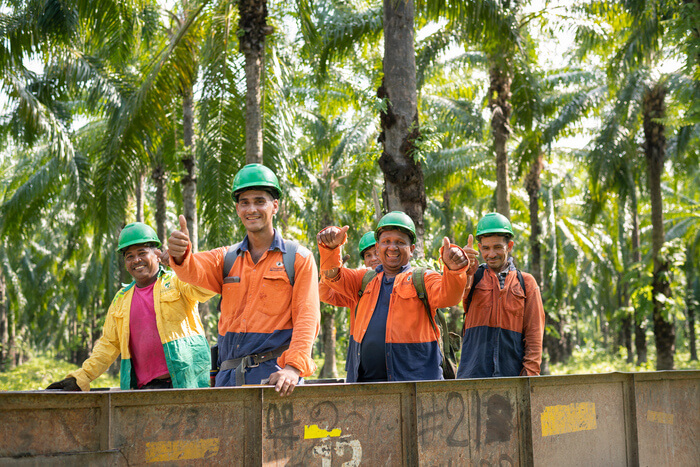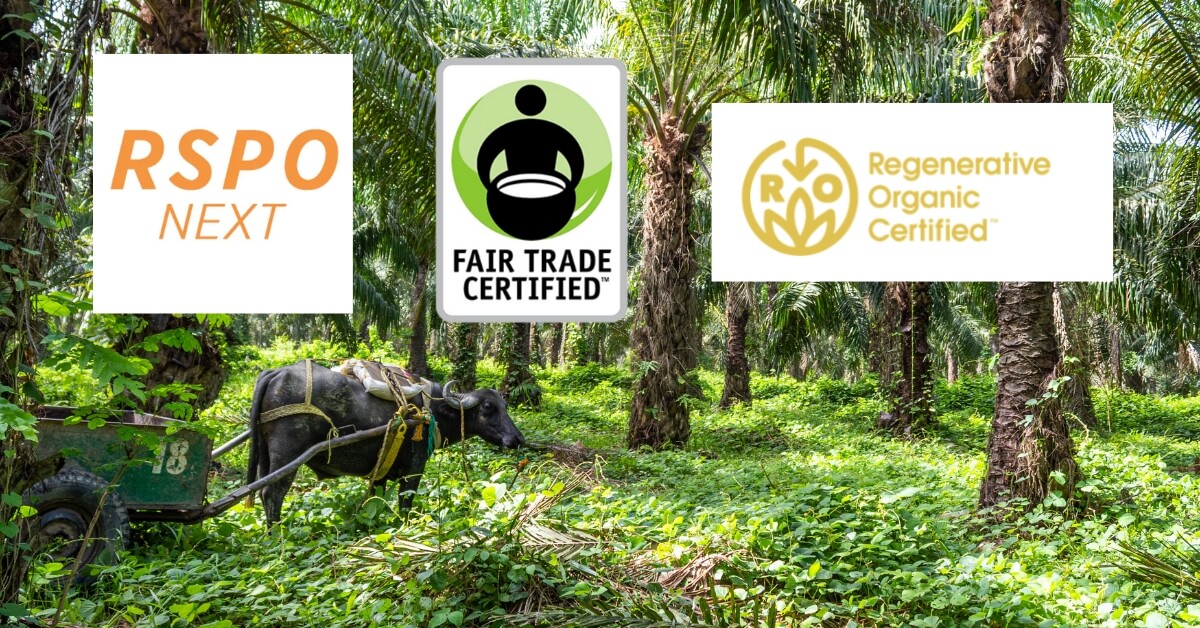Why Carbon-Negative Palm Oil Is the Future of Ethical Sourcing

Carbon-negative palm oil removes more carbon from the atmosphere than it emits during production—setting a new bar for truly regenerative agriculture. It’s not just sustainable; it’s restorative—like planting trees with every drop of oil.da
For food, beauty, and personal care brands, this shift is urgent. Consumers want proof, not promises, and regulations like the EU Deforestation Regulation and Scope 3 emissions reporting demand full transparency. Brands can’t afford greenwashing—they need partners who lead.
That’s where Daabon sets a precedent. Their carbon-negative palm oil is the first of its kind, backed by ISO-verified lifecycle data and transparent carbon accounting. This isn’t future-forward—it’s happening now.
As more buyers seek palm oil that is deforestation-free and transparently sourced, Daabon’s model offers measurable impact and full accountability.
Daabon’s breakthrough offering isn’t just another option—it’s the new global standard.
Palm Oil’s Carbon Footprint: Why It’s Under Scrutiny
Palm oil is everywhere—but not always for the right reasons. It’s in over half of all packaged foods and personal care items. But it’s often associated with deforestation, biodiversity loss, and excessive carbon emissions.
That’s why regulators and conscious consumers are demanding change. The EU now requires proof that palm oil is deforestation-free. Scope 3 emissions rules push companies to track climate impacts across their supply chains. Falling short could mean fines, reputational damage, or lost access to key markets.
To lead in sustainability, brands must understand how carbon footprints are measured. The gold standard is Life Cycle Assessment (LCA)—a method that calculates emissions from every stage: farming, processing, transport, and product use. Daabon applies this approach to ensure their palm oil is produced with environmental integrity.
Here’s how carbon impact is classified:
- Carbon-positive: Adds more carbon to the atmosphere than it removes.
- Carbon-neutral: Balances emissions through offsets or removal.
- Carbon-negative: Removes more carbon than it emits.
These aren’t just technical terms. They affect your ESG scores, investor relations, and brand loyalty. Choosing verified carbon-negative suppliers like Daabon can strengthen your supply chain resilience and climate positioning.
Understanding the math is step one. The next is selecting partners who have already done the work—with data, certifications, and results to show for it.
Daabon’s -977 kg CO₂e/Ton Achievement: A Carbon-Negative Milestone in Palm Oil
 Daabon has achieved what no one else in the palm oil industry has. Their organic palm oil now carries a verified carbon footprint of -977 kg CO₂e per metric ton—making it the first carbon-negative organic palm oil in the world.
Daabon has achieved what no one else in the palm oil industry has. Their organic palm oil now carries a verified carbon footprint of -977 kg CO₂e per metric ton—making it the first carbon-negative organic palm oil in the world.
This achievement isn’t a marketing claim. It’s grounded in science. Daabon conducts a rigorous Life Cycle Assessment following ISO 14067 standards, using its proprietary Ecopalma platform to track every input, output, and impact across the production chain.
While most producers are working to reduce emissions, Daabon’s model removes more carbon than it emits. This is what makes it carbon-negative—and climate-positive.
Here’s how it compares:
- Conventional palm oil: +5,340 kg CO₂e/ton
- RSPO-certified: +3,410 kg CO₂e/ton
- High-efficiency RSPO: +1,470 kg CO₂e/ton
- Daabon’s organic palm oil: -977 kg CO₂e/ton
This data confirms that agriculture can transition from a major climate contributor to a true climate solution. For brands, this means a new path forward—one that’s already verified, certified, and available.
Carbon-negative palm oil isn’t the future. With Daabon, it’s here now.
How Regenerative Farming and Clean Energy Make Palm Oil Carbon-Negative
Carbon-negative palm oil starts with the soil. On Daabon’s farms, regenerative practices like minimal tillage and organic composting enrich the land while capturing carbon. Instead of synthetic fertilizers, nutrient cycles are maintained naturally, and conservation zones on their estates protect biodiversity and support long-term carbon storage.
Every part of the land is designed to give back to the climate. Living soil holds more carbon. Trees and native plants in protected areas boost both ecological resilience and carbon drawdown. This is sustainability with roots—literally.
Beyond the fields, Daabon’s operations follow a closed-loop model. Biodigesters convert methane from organic waste into clean electricity, while leftover plant biomass fuels processing systems. This eliminates the need for fossil fuels and ensures that energy is created, not wasted.
Waste becomes power. Byproducts become nutrients. At every level, Daabon’s palm oil system reduces, reuses, and regenerates.
Emissions are tracked across the entire lifecycle using a verified Scope 1–2–3 framework:
- Scope 1: On-site emissions from farming and operations
- Scope 2: Purchased energy—already transitioned to renewables
- Scope 3: Emissions from suppliers, transport, and end use—measured and minimized through regenerative agriculture strategies
This is how carbon-negative palm oil becomes a reality. Not through offsets or accounting tricks, but through real change in how land is managed and how energy is produced.
With Daabon, sustainability isn’t a label. It’s a living system—measured, managed, and proven.
Certifications That Validate Daabon’s Climate-Positive Palm Oil Practices

Carbon-negative palm oil means nothing without proof. That’s why Daabon backs every claim with globally recognized certifications that address what responsible buyers care about most: environmental performance, ethical sourcing, and supply chain transparency.
Each certification covers a different pillar of trust. RSPO NEXT upholds the most advanced standards in forest protection, labor rights, and traceability. Fair Trade USA signals deep investment in worker well-being and equitable trade practices. And Regenerative Organic Certified® Gold sets the benchmark for soil health, animal welfare, and social fairness.
These aren’t just labels. They’re systems of verification. When you partner with Daabon, you step into a supply chain that’s been audited and approved by leading environmental and ethical bodies.
Additional certifications further strengthen product integrity:
- Non-GMO
- Bio Suisse
- USDA Organic, EU Organic, JAS (Japan Organic Standard)
- Halal and Kosher
Together, these affirm Daabon’s position as a certified organic palm oil leader trusted by brands worldwide. For a full breakdown of what each certification guarantees, see why Daabon’s certifications matter.
In a marketplace clouded by greenwashing, Daabon provides clarity—through standards that speak louder than slogans.
How B2B Brands Can Lead the Future with Climate-Positive Sourcing Partners
Sustainability is no longer the finish line. Regeneration is the next standard. For forward-thinking brands, partnering with carbon-negative suppliers like Daabon offers more than environmental alignment—it delivers a measurable, strategic edge.
Carbon-negative palm oil proves that agriculture can drive climate solutions. Instead of simply doing less harm, it creates net-positive environmental value. That’s the kind of verifiable, forward-facing story brands need as ESG scrutiny intensifies and stakeholder expectations shift.
By sourcing from Daabon, you don’t just reduce your footprint. You build a climate narrative rooted in action—not ambition. Metrics like -977 kg CO₂e per ton become proof points for customers, regulators, and investors alike.
And Daabon’s commitment doesn’t end there. Their strategic roadmap includes:
- Scaling carbon-negative practices across additional farms and refineries
- Investing in low-emission logistics to reduce Scope 3 transportation impacts
- Supporting client decarbonization goals with verified data and proactive collaboration (learn how)
The future favors brands that go beyond compliance. With Daabon, you gain a sourcing partner who leads with integrity, science, and purpose.
In an era of climate accountability, climate-positive sourcing is no longer optional—it’s how category leaders are made.
Final Takeaway: Partnering with Carbon-Negative Suppliers Strengthens Your ESG Strategy
Daabon’s carbon-negative palm oil isn’t just another sustainable ingredient—it’s a breakthrough. With a verified footprint of -977 kg CO₂e per ton, it proves that palm oil can shift from doing “less harm” to delivering net climate benefits.
For brands focused on ESG, this matters. It means measurable Scope 3 reductions, regulatory alignment, and a climate story that resonates with both investors and consumers. In today’s market, your sourcing strategy is part of your brand’s identity.
Daabon has already done the groundwork—investing in regenerative systems, verifying emissions data, and building a transparent, traceable supply chain. When you choose them, you’re sourcing more than palm oil. You’re embedding real climate leadership into your business.
Explore the numbers and next steps in Daabon’s full carbon report or learn how brands are collaborating for climate-forward sourcing.
Lead with action. Source with purpose. Build a climate-positive future—starting with carbon-negative palm oil.

